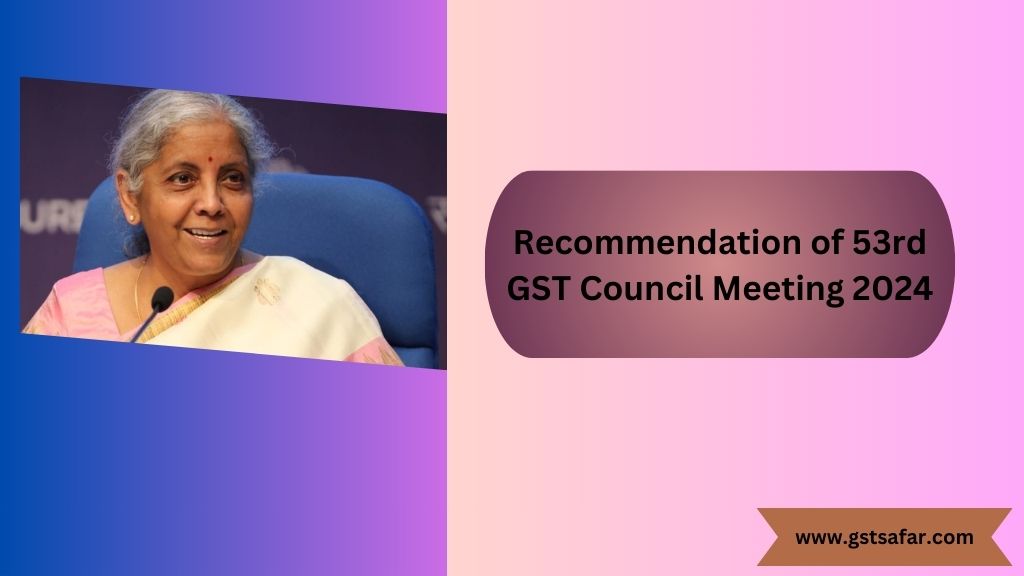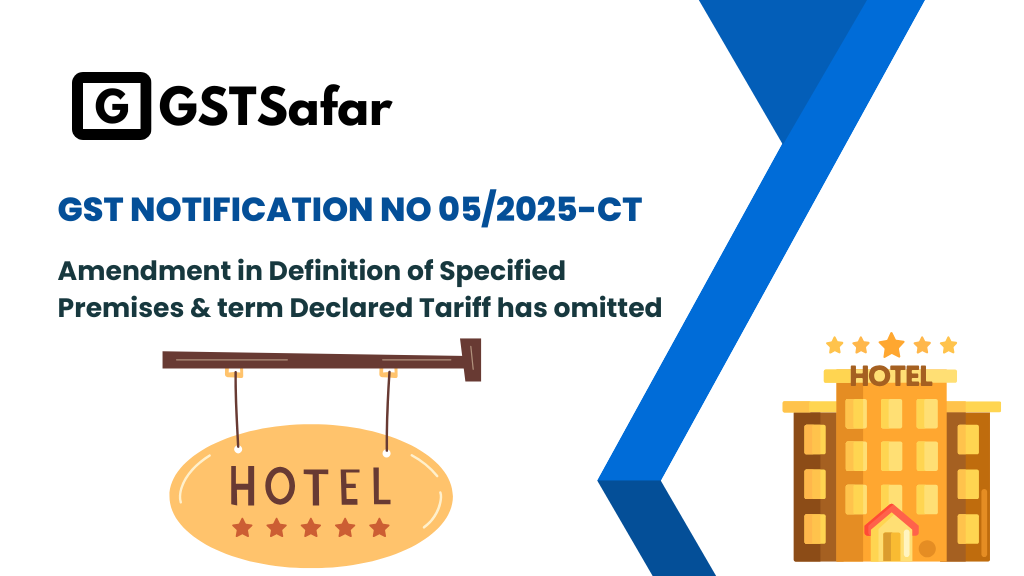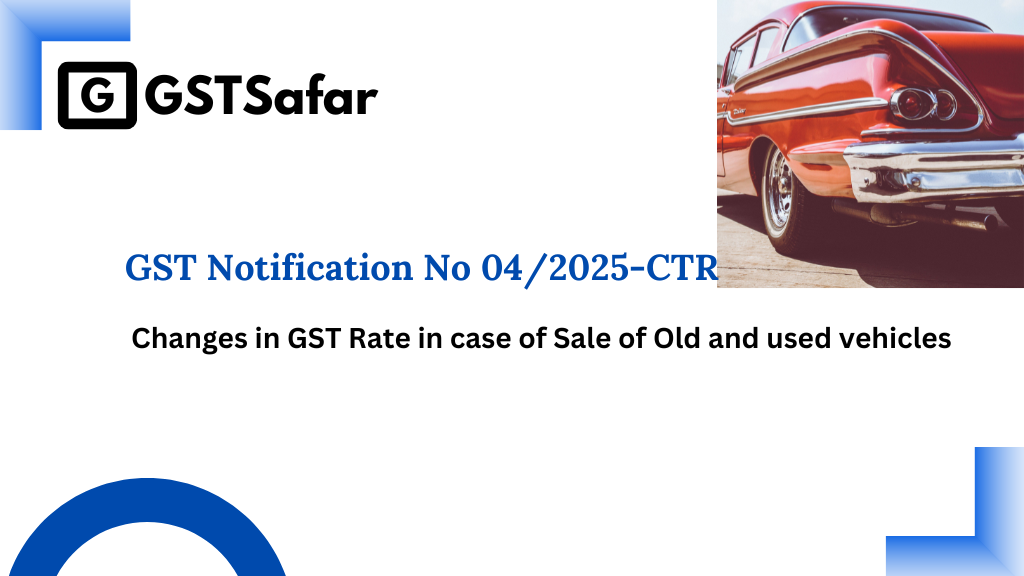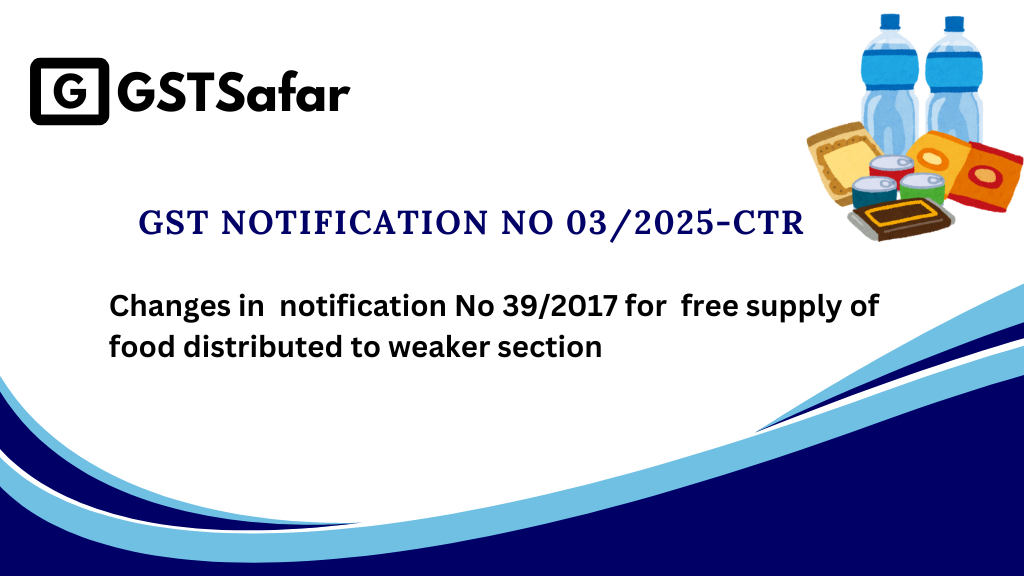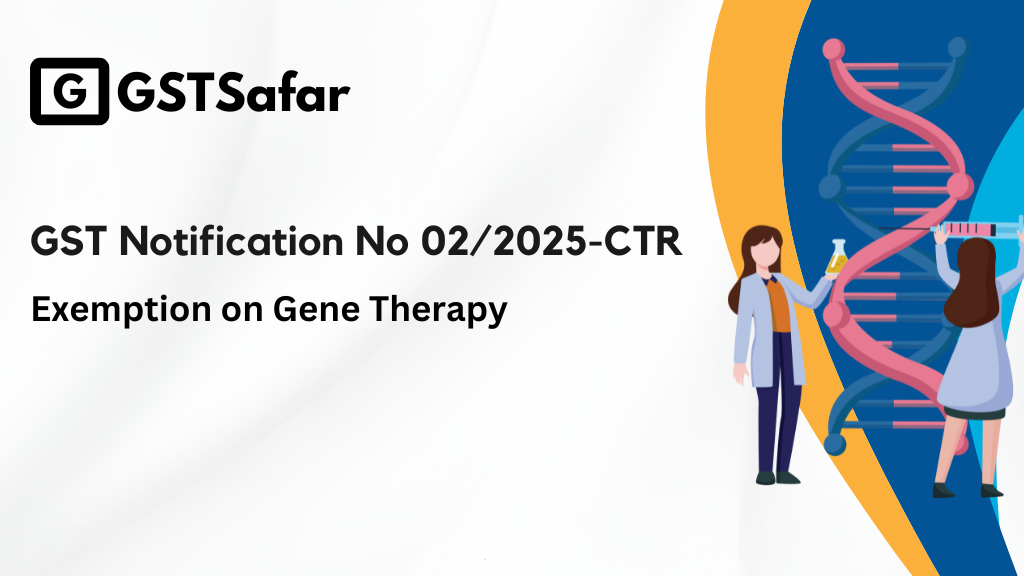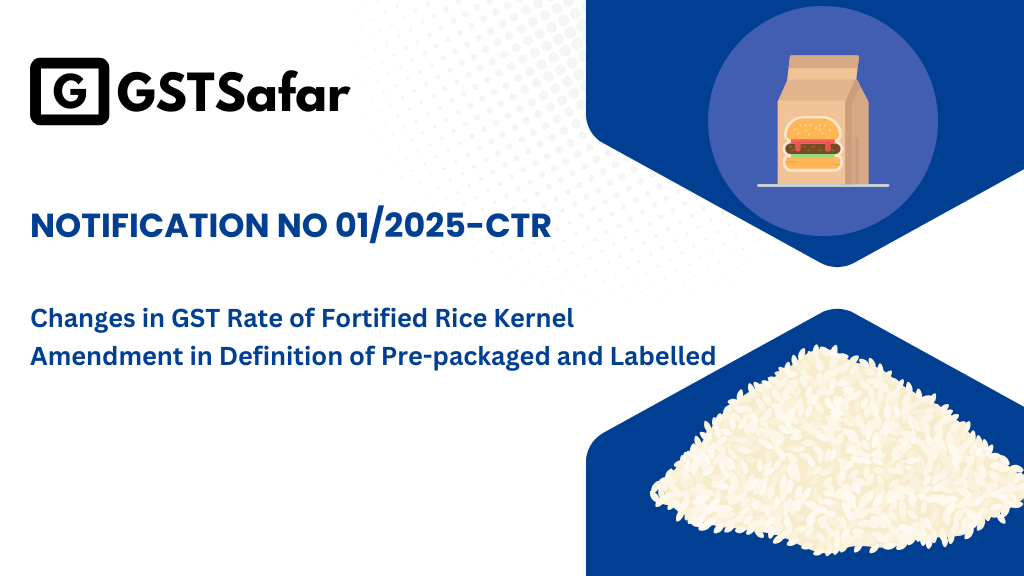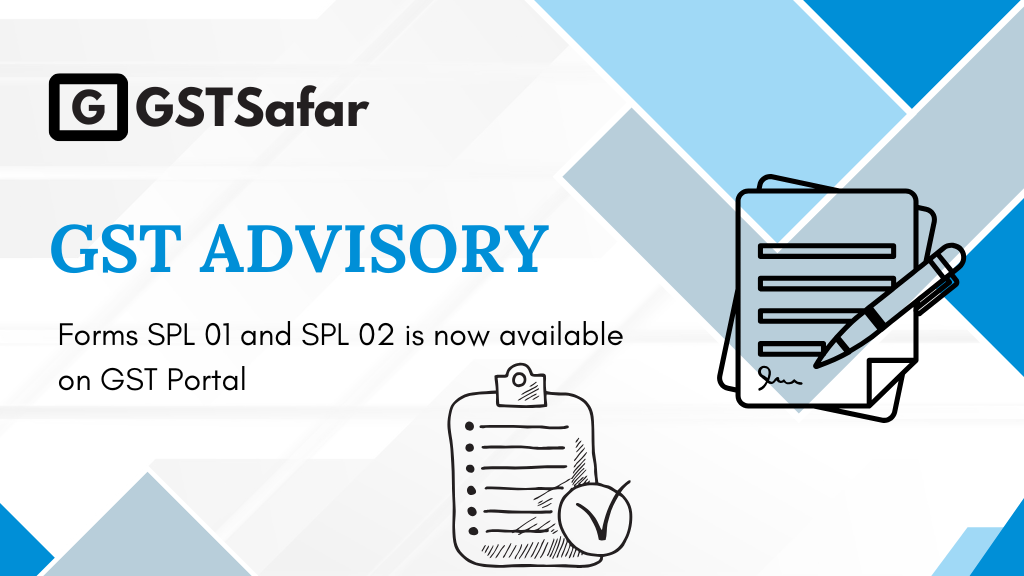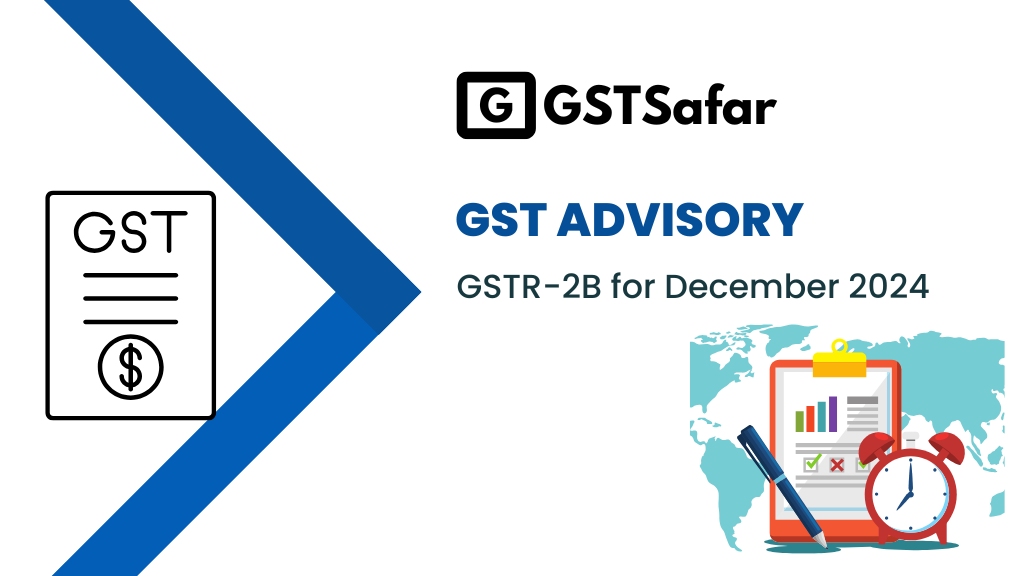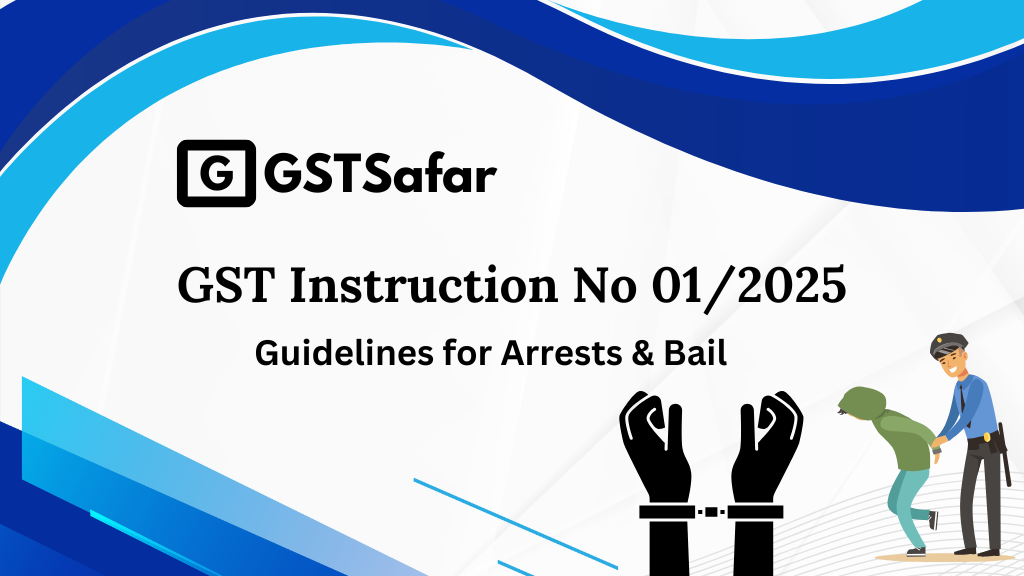This article covers all New recommendations of the 53rd GST Council Meeting 2024, held on June 22, 2024, in New Delhi. The GST Council Meeting has met 53 times since its constitution, and many important decisions were taken in this 53rd GST Council meeting. The last GST council meeting was held in New Delhi on June 22,2024. This 53rd GST Council met under the chairmanship of Union Minister for Finance and Corporate Affairs, Smt. Nirmala Sitharaman, in New Delhi. The meeting was also attended by Union Minister of State for Finance Shri Pankaj Chaudhary, Chief Ministers of Goa and Meghalaya; Deputy Chief Ministers of states & UTs (with legislature), and senior officers of the Ministry of Finance and States and UTs.
Recommendations on GST Rates, Exemptions, clarifications on certain goods
Recommendations on GST Rates, Exemptions, clarifications on certain goods.
| Sr No | Description of goods | Current GST Rate | Proposed new GST Rate | Explanations |
| 1 | Imports of parts, components, testing equipment, tools, and tool- kits of aircrafts | 5% IGST | Uniform 5% IGST on these items to support MRO activities for aircrafts | |
| 2 | All milk cans (steel, iron, aluminum) | 18% | 12% | All types of milk cans will now attract a 12% GST |
| 3 | Carton, boxes, cases of corrugated and non- corrugated paper or paper- board (HS 4819 10; 4819 20) | 18% | 12% | GST on these items reduced from 18% to 12% |
| 4 | All solar cookers | 12% | 12% | Solar cookers, whether single or dual energy source, will attract 12% GST |
| 5 | Poultry keeping machinery and parts | 12% | 12% | Clarification to include parts of poultry keeping machinery at 12% GST, regularizing past practice |
| 6 | All types of sprinklers including fire water sprinklers | 12% | 12% | All types of sprinklers will attract 12% GST, regularizing past practice |
| 7 | IGST exemption on imports for defense forces | Exempt | Extension of IGST exemption on specified items for defense forces until June 30, 2029 | |
| 8 | IGST exemption on imports of research equipment/buoys under RAMA programme | Exempt | Extension of IGST exemption for specified research equipment under the RAMA programme | |
| 9 | Exemption of Compensation Cess on imports in SEZ by SEZ Unit/developers | Applicabl e Rate | Exempt | Compensation Cess exempted for SEZ imports by SEZ Units/developers for |
| 10 | Exemption of Compensation cess on supply of aerated beverages and energy drinks to authorized Unit Run Canteens under ministry of Defence | Applicabl e rate | Exempt | Exemption of Compensation Cess for supplies to Unit Run Canteens under Ministry of Defence |
| 11 | Adhoc IGST exemption on imports of technical documentation for AK-203 rifle kits for Indian Defense forces | Applicabl e rate | Exempt | Adhoc IGST exemption provided for importing technical documentation for AK-203 rifle kits |
Recommendations for exemption on certain services
Note-1 Example:
A company rents accommodation for an employee for work purposes. The accommodation costs Rs. 18,000 per month. The employee stays in this accommodation for 100 continuous days.
Now the accommodation service provider would typically charge GST on the Rs. 18,000 per month rent. But after the exemptions Since the accommodation costs less than Rs. 20,000 per month and the stay is for more than 90 continuous days, this service is exempt from GST. The accommodation service provider does not need to charge GST on the Rs. 18,000 per month rent.
Retroactive Application:
- If the employee’s stay occurred before this rule was clarified, the exemption would still apply. For example, if the stay was from January 1 to April 10, 2023, and the rule was clarified in 2024, no GST would be applicable for that past period as well.
Hence If you stay in accommodation that costs up to Rs. 20,000 per month for at least 90 continuous days, you don’t have to pay GST on the rent. This rule also applies to stays that happened before the rule was clarified.
Other Proposed Changes related to services
Other Changes related to services are as follows
1. Exemption of GST on Co-Insurance Premium Apportioned by Lead Insurer to Co-Insurer
In co-insurance agreements, multiple insurers (lead insurer and co-insurers) share the risk of insuring a particular policy. The premium paid by the insured is divided among these insurers.
In simple words, the premium shared between insurers in a co-insurance agreement will not be taxed under GST, and past transactions will be treated according to the new rule without requiring any changes or additional GST.
2. Exemption of GST on Ceding Commission/Re-Insurance Commission Transactions
In re-insurance agreements, an insurance company (insurer) transfers a portion of its risk to another insurance company (re-insurer). For this transfer, the insurer pays a ceding commission or re-insurance commission to the re-insurer
In simple words, the payments made between insurers and re-insurers for transferring risk (ceding commission/re-insurance commission) will not be taxed under GST, and past transactions will be adjusted to reflect this rule.
3. Regularization of GST Liability on Reinsurance Services for Specified Insurance Schemes (01.07.2017 to 24.01.2018)
For certain specified insurance schemes mentioned under Sr. Nos. 35 & 36 of notification No. 12/2017-CT (Rate) dated 28.06.2017, there was some uncertainty regarding the GST liability on reinsurance services.
In simple words, any GST issues related to reinsurance services for specific insurance schemes during the period from July 1, 2017, to January 24, 2018, will be settled as they are, and no further changes or additional GST payments will be required.
4. Clarification on Retrocession as Re-Insurance of Re-Insurance
Retrocession is a process where a re-insurer further transfers the risk they have taken on to another re- insurer. This is essentially “re-insurance of re-insurance.”
In simple words, retrocession (where a re-insurer passes on the risk to another re-insurer) will be officially recognized as re-insurance, making it eligible for GST exemption provided under Sl. No. 36A of notification No. 12/2017-CTR dated 28.06.2017.as re-insurance under the specified notification.
5. Clarification on GST Exemption for Statutory Collections by RERA
The Real Estate Regulatory Authority (RERA) made certain statutory collections.
Proposed Clarification:
- Statutory collections made by RERA will be clarified as being exempt from GST.
- This exemption falls under entry 4 of notification No. 12/2017-CTR dated 28.06.2017.
In simple words, any statutory collections made by RERA will not be subject to GST, according to the specified notification.
6. Clarification on Tax Exemption for Incentive Sharing by Acquiring Banks
Incentives are provided to banks for promoting the use of RuPay Debit Cards and low-value BHIM-UPI transactions. These incentives may be shared among various stakeholders.
Proposed Clarification:
When the acquiring bank shares these incentives with other stakeholders, and this sharing is clearly defined under the incentive scheme by NPCI (National Payments Corporation of India) in consultation with participating banks, it will not be taxable.
In simple words, the incentives given to banks for promoting RuPay Debit Cards and low-value BHIM-UPI transactions, when shared with other stakeholders according to the defined scheme, will not be subject to GST
Proposed Measures for Trade Facilitation
Government has proposed certain Measures for Trade Facilitation:
1. Insertion of Section 128A in CGST Act: Waiver of Interest and Penalty for FY 2017-18 to FY 2019-20
The GST Council is proposing a new section, 128A, in the CGST Act to address issues faced by taxpayers during the early years of GST implementation.
Proposed Change:
- Waiver of Interest and Penalties: Interest and penalties on demand notices issued under Section 73 of the CGST Act for fiscal years 2017-18, 2018-19, and 2019-20 can be waived.
- Condition for Waiver: To benefit from this waiver, taxpayers must pay the full amount of tax demanded in the notice by March 31, 2025.
- Exclusion: This waiver does not apply to demands related to erroneous refunds.
In simple words, taxpayers who received tax demand notices for the fiscal years 2017-18, 2018-19, and 2019-20 can have their interest and penalties waived if they pay the full tax amount by March 31, 2025. However, this waiver does not apply to demands for incorrect refunds.
2. Reduction of Government Litigation by Setting Monetary Limits for Appeals under GST
To reduce the number of legal cases related to GST, the GST Council has recommended setting monetary limits for the government when filing appeals.
Proposed Limits:
- GST Appellate Tribunal (GSTAT): The government will only file an appeal if the amount involved is Rs. 20 lakhs or more.
- High Court: The government will only file an appeal if the amount involved is Rs. 1 crore or more.
- Supreme Court: The government will only file an appeal if the amount involved is Rs. 2 crores or more.
Exclusions: Some specific cases may be excluded from these limits, but generally, these thresholds will apply.
In simple words, to reduce the number of GST-related court cases, the government will only file appeals if the amount in dispute meets or exceeds the specified monetary limits: Rs. 20 lakhs for GST Appellate Tribunal, Rs. 1 crore for High Court, and Rs. 2 crores for Supreme Court.
3. Reduction of Pre-Deposit Amount for Filing Appeals under GST (Sections 107 and 112)
To help taxpayers with cash flow and reduce working capital blockage, the GST Council has recommended reducing the pre-deposit amounts required when filing appeals.
Changes to Pre-Deposit Requirements:
- Appeals with Appellate Authority:
- The maximum pre-deposit amount for CGST has been reduced from Rs. 25 crores to Rs. 20 crores.
- The maximum pre-deposit amount for SGST has also been reduced from Rs. 25 crores to Rs. 20 crores.
· Appeals with Appellate Tribunal:
- The pre-deposit percentage has been reduced from 20% to 10%.
- The maximum pre-deposit amount for CGST has been reduced from Rs. 50 crores to Rs. 20 crores.
- The maximum pre-deposit amount for SGST has also been reduced from Rs. 50 crores to Rs. 20 crores.
In simple words, the required pre-deposit amounts for filing GST appeals have been lowered to ease the financial burden on taxpayers. The maximum amounts for appeals with the Appellate Authority and Appellate Tribunal have been significantly reduced, and the pre-deposit percentage for the Appellate Tribunal has been cut in half.
4. GST Exemption for Extra Neutral Alcohol (ENA) Used in Alcoholic Liquor Production
Extra Neutral Alcohol (ENA) is a key ingredient used in the production of alcoholic beverages for human consumption. The GST Council has recommended amending the GST law to clearly state that rectified spirit/Extra Neutral Alcohol (ENA) is not subject to GST when it is used to manufacture alcoholic liquors for human consumption. This recommendation involves amending sub-section (1) of Section 9 of the CGST Act, 2017, to explicitly exclude ENA from GST in this context. ENA used to produce alcoholic beverages will not be taxed under GST, and the law will be amended to make this exclusion clear.
5. Reduction in TCS Rate for Supplies Made Through E-Commerce Operators (ECOs)
Electronic Commerce Operators (ECOs) are currently required to collect Tax Collected at Source (TCS) on the net taxable supplies made through their platforms.
Proposed Change:
- The GST Council has recommended reducing the TCS rate from the current 1% to 0.5%.
- The new rate will be 0.25% for CGST and 0.25% for SGST/UTGST, or 0.5% for IGST.
In simple words, the tax rate that e-commerce platforms collect on behalf of sellers will be reduced from 1% to 0.5%, making it easier financially for suppliers who sell through these platforms.
6. Extension of Time for Filing Appeals in GST Appellate Tribunal
Currently, taxpayers have a limited period to file appeals before the GST Appellate Tribunal.
Proposed Change:
- The GST Council has recommended amending Section 112 of the CGST Act, 2017.
- This amendment will specify that the three-month period for filing appeals will start from a date notified by the Government, rather than the date of the appeal/revision order.
- This change will apply to appeal/revision orders passed before the notification date.
In simple words, the time limit for filing appeals to the GST Appellate Tribunal will begin from a new date announced by the Government, not from the original order date. This gives taxpayers more time to prepare and file their appeals for pending cases.
7. Relaxation in Conditions of Section 16(4) for Cases with Return Filing After Revocation of Registration Cancellation
Section 16(4) of the CGST Act sets time limits for taxpayers to avail input tax credit (ITC) on invoices or debit notes.
Proposed Changes:
- For Initial Years of GST Implementation (FY 2017-18 to FY 2020-21):
- The GST Council has recommended that for financial years 2017-18, 2018-19, 2019-20, and 2020-21, the time limit to claim ITC will be extended.
- Taxpayers can claim ITC in any return filed in FORM GSTR 3B up to November 30, 2021, for these years.
- This change will be applied retrospectively from July 1, 2017.
b) For Cases with Return Filing After Revocation of Registration Cancellation:
- The GST Council has recommended a retrospective amendment for cases where the taxpayer’s registration was cancelled and later revoked.
- If the taxpayer files the returns for the period from the date of cancellation to the date of revocation within thirty days of the revocation order, the conditions of Section 16(4) will be relaxed.
- This change will also be effective from July 1, 2017.
In simple words:
- The time limit for claiming input tax credit will be extended for the initial years of GST.
- If a taxpayer’s GST registration was cancelled and then reinstated, they will have a special relaxation. If they file their pending returns within thirty days of getting their registration back, they can still claim their input tax credit, even if they missed the usual deadlines. This rule applies from July 1, 2017, onwards.
8.Change in Due Date for Filing GSTR-4 for Composition Taxpayers
Composition taxpayers are small taxpayers who opt for a simplified tax payment scheme under GST. They file their annual return in FORM GSTR-4. Starting from the financial year 2024-25, small taxpayers who use the composition scheme will have until June 30 (instead of April 30) to file their annual return in FORM GSTR-4. This gives them more time to complete and submit their return.
9. Amendment of Rule 88B Regarding Interest on Delayed Filing of Returns
When taxpayers file their GST returns late, they are usually required to pay interest on the delayed payment of tax.
Proposed Change:
- The GST Council has recommended an amendment to Rule 88B of the CGST Rules.
- If a taxpayer has enough money in their Electronic Cash Ledger (ECL) on the due date of filing their GSTR-3B return and uses this amount to pay the tax when filing the return, this amount will not be considered when calculating interest for the delayed filing.
- This means taxpayers won’t have to pay interest on the tax amount if the money was already available in their ECL on the due date, even if they file the return late.
In Simple Words: If you have enough money in your GST account on the due date to cover your tax payment, you won’t have to pay interest on that amount if you file your return late. This change makes it fairer for taxpayers who had the funds ready but were late in filing the return.
Let’s understand it with example:
Suppose
- Due date for filing GSTR-3B: 20th April & Tax payable: Rs. 10,000
- Money available in ECL on due date (April 20): Rs. 10,000
- Actual filing date of GSTR-3B: 5th May (15 days late)
Before Amendment the situation is like:
Interest amount: (Rs. 10,000 * 18% * 15/365) = Rs. 73.97
After Amendment:
- Since Rs. 10,000 was available in the ECL on the due date (April 20) and was used to pay the tax when the return was filed on May 5, no interest will be charged on this amount for the delayed period.
- Interest amount: Rs. 0
In this example, because the taxpayer had the required amount in their ECL on the due date, they will not have to pay any interest for filing the return 15 days late. This amendment ensures that taxpayers who have their funds ready but file late due to other reasons are not unfairly penalized with interest.
10. Insertion of Section 11A in CGST Act: Power to Waive Recovery of Unpaid or Underpaid GST Due to General Practice
There are situations where certain taxes were not levied or were under-levied because of common practices in trade.
Proposed Change:
- The GST Council has recommended inserting a new Section 11A in the CGST Act.
- This new section will give the Government the power, based on the recommendations of the GST Council, to waive the recovery of GST that was not levied or was under-levied due to common trade practices.
In Simple Words: If businesses did not pay enough GST or did not pay GST at all because they were following common practices in their industry, the Government will have the authority to officially waive the requirement to recover these unpaid taxes. This means businesses won’t be penalized for not paying GST in situations where it was a common practice not to do so, as long as the GST Council agrees.
Example:
- Scenario:
- Many businesses in a particular industry have not been charging GST on a specific service due to a common industry practice.
2. Before Section 11A:
- The tax authorities might demand that these businesses pay all the GST they missed, along with penalties and interest.
3. After Section 11A:
- The Government, based on the GST Council’s recommendations, can decide not to recover the unpaid GST from these businesses.
- This helps regularize the situation and avoid penalizing businesses for following common industry practices.
In simple words, Section 11A will allow the Government to forgive unpaid or underpaid GST if it was a widespread practice in the industry, ensuring fairness for businesses.
11. Refund of Additional IGST Paid Due to Upward Price Revision After Export
When goods are exported, sometimes their prices are revised upwards after the export. This can result in an additional IGST payment.
Proposed Change:
- The GST Council has recommended creating a mechanism to allow taxpayers to claim a refund for the additional IGST paid because of an upward price revision of exported goods.
- This will help taxpayers who have to pay more IGST due to price increases after the goods have been exported to get a refund for the extra amount paid.
In Simple Words: If you export goods and later price are increase, leading to more IGST being paid, you will be able to get a refund for that extra IGST with the new mechanism.
12. Clarification on Valuation of Import of Services by a Related Person with Full Input Tax Credit
When a foreign affiliate provides services to a related domestic entity (a company in the same group), and the domestic entity can claim full input tax credit (ITC), there needs to be a way to determine the value of these services for GST purposes.
Proposed Clarification:
- If the foreign affiliate provides services to the related domestic entity, and the domestic entity is eligible for full ITC, the value of the services declared in the invoice by the domestic entity will be considered as the open market value.
- If the domestic entity does not issue an invoice for these services, the value of the services will be deemed as Nil. This means the value will be considered zero, and this zero value will be treated as the open market value.
In Simple Words: When a company in another country provides services to its related company in India, and the Indian company can fully claim the GST paid as a credit:
- The price shown in the invoice from the Indian company will be accepted as the market value.
- If the Indian company doesn’t issue an invoice, the value of the services will be considered zero for GST purposes.
13. Clarification on Input Tax Credit (ITC) for Ducts and Manholes Used in Optical Fiber Cable Networks
There was some uncertainty about whether businesses can claim input tax credit (ITC) for the GST paid on ducts and manholes used in the installation and maintenance of optical fiber cable (OFC) networks.
Proposed Clarification:
- The GST Council has recommended clarifying that businesses can claim ITC for the GST paid on ducts and manholes used in OFC networks.
- This means ITC is not restricted for these items under clause (c) or clause (d) of sub-section (5) of section 17 of the CGST Act.
In Simple Words: Businesses can claim a credit for the GST they pay on ducts and manholes used in their optical fiber cable networks. There is no restriction on claiming ITC for these items.
14. Clarification on Place of Supply for Custodial Services Provided by Banks
Custodial services are services provided by banks to manage and safeguard financial assets for clients, such as Foreign Portfolio Investors (FPIs).
Proposed Clarification:
- The GST Council recommended clarifying that the place of supply for custodial services provided by Indian banks to Foreign Portfolio Investors (FPIs) is determined according to Section 13(2) of the IGST Act, 2017.
Section 13(2) of the IGST Act:
- As per Section 13(2), the place of supply of services (except for specific exceptions) is the location of the recipient of the service.
In Simple Words: when Indian banks provide custodial services to foreign investors, the service is considered supplied at the investor’s location, which is typically outside India. This determines the GST applicability.
15. Clarification on Valuation of Corporate Guarantees Provided Between Related Persons
Corporate guarantees are assurances given by one company (often within the same group of related companies) to cover the obligations of another company. When these guarantees are provided between related companies, their valuation for GST purposes can be complex.
Proposed Changes and Clarifications:
The GST Council recommended amending Rule 28(2) of the CGST Rules, 2017, retrospectively from October 26, 2023.
A circular will be issued to clarify various issues related to the valuation of corporate guarantee services provided between related parties.
It will be clarified that the valuation rules under Rule 28(2) will not apply in two specific cases:
- Export of Services: When the corporate guarantee is provided as a service to a related company outside India, it will not be subject to valuation under Rule 28(2).
- Full Input Tax Credit (ITC): If the recipient of the corporate guarantee service within India is eligible for full ITC, the valuation rules under Rule 28(2) will also not apply.
In Simple Words, when related companies provide corporate guarantees to each other:
- The rules for valuing these guarantees for GST purposes will be updated and clarified.
- These valuation rules will not apply if the corporate guarantee service is provided to a related company outside India (export of services).
- The rules will also not apply if the company receiving the guarantee within India can claim full GST credit.
Let’s understand with Example:
- Scenario:
- Company A in India provides a corporate guarantee to Company B, which is a related company.
2. Case 1: Export of Services:
- If Company B is located outside India (e.g., in the USA), the valuation rules for GST will not apply to this corporate guarantee.
3. Case 2: Full ITC Eligibility:
- If Company B is in India and is eligible to claim full input tax credit for GST, the valuation rules under Rule 28(2) will also not apply to this guarantee.
In simple words, when a company gives a guarantee to a related company, if the related company is abroad or can fully claim GST credits, the special valuation rules for these guarantees won’t apply. This makes it easier for businesses to manage these transactions.
16. Clarification on Section 16(4) for Invoices Issued Under Reverse Charge Mechanism (RCM)
Under the Reverse Charge Mechanism (RCM), when a registered taxpayer receives supplies from an unregistered supplier, the registered taxpayer (recipient) is responsible for paying the GST and issuing an invoice.
Proposed Clarification:
- The GST Council has recommended clarifying how to determine the relevant financial year for claiming input tax credit (ITC) under Section 16(4) of the CGST Act.
- Specifically, when dealing with supplies received from unregistered suppliers under RCM, the financial year for calculating the time limit to avail ITC is the financial year in which the recipient issues the invoice.
In Simple Words: If you receive goods or services from an unregistered supplier and you have to pay GST under the reverse charge mechanism:
- You, as the recipient, issue the invoice for this transaction.
- The time limit for claiming ITC is based on the financial year when you issue this invoice, not the financial year when you received the supply.
Let’s understand this with example:
A registered company (Recipient) receives services from an unregistered freelancer (Supplier) on March 25, 2024.The company pays the GST under RCM and issues an invoice on April 5, 2024.
The relevant financial year for availing ITC is 2024-25, since the invoice was issued on April 5, 2024. So when you have to pay GST on supplies from unregistered suppliers and issue the invoice yourself, the deadline to claim ITC is based on the year you issue the invoice, not the year you received the supply.
17. Clarifications to Provide Clarity and Reduce Litigation
The GST Council has recommended clarifications on several issues to help businesses and tax officers understand the rules better and reduce disputes.
Clarifications are as follows:
| S No | Clarification Topic |
| 1 | Reimbursement of Securities/Shares as ESOP/ESPP/RSU Provided by a Company to Its Employees |
| 2 | Reversal of ITC on Life Insurance Premium |
| 3 | Taxability of Wreck and Salvage Values in Motor Insurance Claims |
| 4 | Warranty/Extended Warranty Provided by Manufacturers |
| 5 | ITC on Repair Expenses in Motor Vehicle Insurance Claims |
| 6 | Taxability of Loans Granted Between Related Persons or Group Companies |
| 7 | Time of Supply on Annuity Payments under HAM Projects |
| 8 | Time of Supply for Spectrum Allotment to Telecom Companies |
| 9 | Place of Supply for Goods Supplied to Unregistered Persons |
| 10 | Evidence for Compliance of Post-Sale Discount Conditions |
| 11 | Special Procedure for Manufacturers of Specified Commodities |
18.Amendment for Transitional Credit for Input Service Distributor (ISD)
Transitional credit refers to the ability to carry forward tax credits from the old tax regime (before GST) to the new GST regime.
Proposed Change:
- The GST Council recommended amending Section 140(7) of the CGST Act, effective retrospectively from July 1, 2017.
- This amendment will allow Input Service Distributors (ISDs) to claim transitional credit for services provided before the GST implementation date, as long as the invoices for these services were received by the ISD before that date.
In Simple Words: If your business (as an ISD) received invoices for services provided before GST started (July 1, 2017), you can now claim tax credit for those invoices even after GST was implemented. This change applies retroactively from the beginning of GST.
19. Introduction of FORM GSTR-1A for Amending or Adding Details Before Filing GSTR-3B
FORM GSTR-1 is used by taxpayers to report details of their sales and outward supplies, while FORM GSTR- 3B is used to declare tax liabilities and make tax payments.
Proposed Change:
- The GST Council recommended introducing a new optional facility called FORM GSTR-1A.
- This form will allow taxpayers to amend or add details in FORM GSTR-1 for a tax period before filing their return in FORM GSTR-3B for that period.
Benefits:
- Taxpayers can correct any mistakes or add any missing information about their supplies before the final tax return (FORM GSTR-3B) is filed.
- Ensures that the correct tax liability is auto-populated in FORM GSTR-3B.
In Simple Words: If you missed any details or need to correct information about your sales for a tax period, you can use FORM GSTR-1A to make those changes before you file your final tax return in FORM GSTR-3B. This helps ensure your tax return is accurate and up-to-date.
20. Exemption from Filing Annual Return in FORM GSTR-9/9A for Small Taxpayers
Annual returns in FORM GSTR-9 and FORM GSTR-9A are detailed summaries of a taxpayer’s transactions for the entire financial year.
Proposed Change:
- The GST Council recommended that taxpayers with an annual turnover of up to two crore rupees will be exempt from filing the annual return in FORM GSTR-9/9A for the financial year 2023-24.
In Simple Words: If your business’s total sales for the year 2023-24 are two crore rupees or less, you do not need to file the detailed annual return (FORM GSTR-9 or FORM GSTR-9A). This exemption simplifies compliance for small taxpayers.
21.Clarification on Penal Provision for E-Commerce Operators
Section 122(1B) of the CGST Act includes penalties for certain offenses by e-commerce operators.
Proposed Change:
- The GST Council recommended amending Section 122(1B) of the CGST Act, effective retrospectively from October 1, 2023.
- This amendment clarifies that the penal provisions in Section 122(1B) apply only to those e-commerce operators who are required to collect tax under Section 52 of the CGST Act.
- It does not apply to other e-commerce operators who are not required to collect tax under this section.
In Simple Words: Only e-commerce operators who must collect tax (TCS) under Section 52 will be subject to the penalties in Section 122(1B). Other e-commerce operators who do not have this tax collection requirement will not be affected by these penalties. This clarification is effective from October 1, 2023.
22. Adjustment of Payments for Pre-Deposit When Filing an Appeal
When a taxpayer disagrees with a GST demand, they can file an appeal. A pre-deposit is a mandatory payment required before the appeal is filed.
Proposed Change:
- The GST Council recommended amending Rule 142 of the CGST Rules.
- A circular will be issued to establish a mechanism to adjust amounts paid using FORM GST DRC- 03 against the pre-deposit required for filing an appeal.
In Simple Words: If you have already made a payment towards a GST demand using FORM GST DRC-03, this amount can now be used to cover the mandatory pre-deposit needed to file an appeal. This makes it easier for taxpayers to manage their payments and appeals
Other Measures pertaining to Law & Procedures
1. Nationwide Roll-Out of Biometric-Based Aadhaar Authentication for GST Registration
The GST Council is aiming to improve the GST registration process to prevent fraud.
Proposed Change:
- The Council recommended rolling out biometric-based Aadhaar authentication for GST registration applicants across India.
- This will be done in phases.
Benefits:
- Strengthens the registration process.
Helps prevent fraudulent input tax credit (ITC) claims made using fake invoices
In Simple Words: New GST registration applicants across India will need to verify their identity using their fingerprints or facial recognition (biometric authentication) linked to their Aadhaar. This will be implemented step by step and will help stop fake GST claims.
2. Simplification of Time Limits for Issuing Demand Notices and Orders Under GST
Currently, the time limits for issuing demand notices and orders differ based on whether a case involves fraud, suppression, willful misstatement, or not.
Proposed Change:
- Amendments to Section 73 and Section 74 of the CGST Act, and the insertion of a new Section 74A, will establish a common time limit for issuing demand notices and orders, regardless of whether the case involves fraud, suppression, or willful misstatement.
- This common time limit will apply to demands for the financial year 2024-25 onwards.
- Additionally, the time limit for taxpayers to avail the benefit of a reduced penalty (by paying the tax demanded along with interest) will be increased from 30 days to 60 days.
In Simple Words:
- Unified Time Limit: There will be a single time limit for issuing GST demand notices and orders, whether or not the case involves fraud or similar issues. This simplifies the process and applies from the financial year 2024-25 onwards.
- Extended Penalty Payment Time: Taxpayers will now have 60 days (instead of 30 days) to pay the demanded tax and interest to benefit from a reduced penalty.
These changes aim to make the GST compliance process simpler and more consistent.
3. Restriction on Refund of IGST for Goods Subject to Export Duty
Refunds of IGST (Integrated Goods and Services Tax) are typically available for goods that are exported. However, the GST Council is proposing changes to limit these refunds when export duty is payable on the goods.
Proposed Change:
- Amendments to Section 16 of the IGST Act and Section 54 of the CGST Act will restrict refunds of IGST for goods that are subject to export duty.
- This restriction applies whether the goods are exported without payment of taxes or with payment of taxes.
- The same restriction will apply if such goods are supplied to a Special Economic Zone (SEZ) developer or a SEZ unit for authorized operations.
In Simple Words: If you export goods that are subject to export duty, you will not be able to claim a refund of the IGST paid on those goods. This rule applies whether you export the goods with or without paying taxes and also if you supply these goods to an SEZ developer or a SEZ unit for authorized operations
4. Lowering the Threshold for Reporting B2C Inter-State Supplies in GSTR-1
Businesses must report details of their sales in FORM GSTR-1. For inter-State sales to unregistered persons (B2C), individual invoices must be reported if the invoice amount exceeds a certain threshold.
Proposed Change:
- The GST Council recommended reducing the threshold for invoice-wise reporting of B2C inter- State supplies in Table 5 of FORM GSTR-1 from Rs. 2.5 lakh to Rs. 1 lakh.
In Simple Words: Businesses now need to report individual invoices for inter-State sales to unregistered customers if the invoice amount is Rs. 1 lakh or more, instead of the previous threshold of Rs. 2.5 lakh. This means more detailed reporting for such transactions.
5. Monthly Filing Requirement for FORM GSTR-7 for TDS Deductors
FORM GSTR-7 is used by registered persons who are required to deduct tax at source (TDS) under Section 51 of the CGST Act.
Proposed Changes:
- Mandatory Monthly Filing
Registered persons who need to deduct tax at source must file FORM GSTR-7 every month, even if no tax was deducted in that month.
2. No Late Fee for Nil Returns:
- If no tax was deducted during the month, and a “Nil” FORM GSTR-7 return is filed, there will be no late fee for filing it late.
3. Invoice-Wise Details:
- When filing FORM GSTR-7, invoice-wise details of the transactions for which tax was deducted must be provided.
In Simple Words:
- If you’re required to deduct tax at source, you must file FORM GSTR-7 every month, even if you didn’t deduct any tax that month.
- If you didn’t deduct any tax and file a “Nil” return, you won’t have to pay a late fee for filing it late.
- You need to provide details of each invoice when you file FORM GSTR-7.
Read similar article
